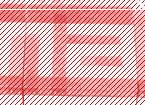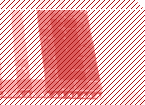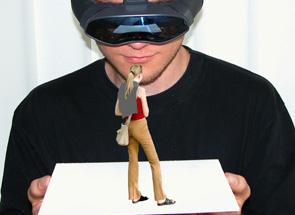| |
|
|
|
|
||
|
||||||||||||||||||||
| |
|
|||||||||||||||||||||||||||||
|
 |
 |
 |
|
||||||||||||||||||||||||||
| Gulliver’s Box Adrian David Cheok (SGP) Hirokazu Kato (J) Ars Electronica Futurelab (A) Ars Electronica Center - Museum der Zukunft 06.09. to 11.09. from 15:30 | ||||||||||||||||||||||||||||||

|
Put on your own theatrical production in which you play the lead role, invent characters or direct the show. In “Gulliver's Box,” you can produce an entire narrative alone or in collaboration with friends, and then allow others to experience it in virtual reality. Just like in the world of huge Brobdignagians and tiny Lilliputians in “Gulliver’s Travels” by Jonathan Swift, the play of scale and relation is what shatters accustomed modes of seeing. The central challenge facing this project was to position a novel medium at the nexus of theater, film and installation.
“Gulliver's Box” was developed and realized at the Human Interface Lab of Osaka University’s Graduate School of Engineering Science, the Ars Electronica Futurelab and the Zaxel Systems Inc.
Adrian David Cheok (SGP) has worked in real-time systems, soft computing, and embedded computing in both Mitsubishi Electric Research Labs (Osaka, Japan) and at the Depertment of Electrical and Computer Engineering, National University of Singapore (NUS) where he heads the Mixed Reality Lab. In NUS he has been working on research covering mixed reality, human-computer interaction, wearable computers and smart spaces, fuzzy systems, embedded systems, power electronics, and multi-modal recognition. The research output has included numerous high quality academic journal papers, research prototype deliverables, numerous exhibitions, keynote speeches, and international television worldwide broadcasts (including CNN/CNBC). He is currently Chairman of the IEEE Singapore Section, and President of ACM SIGCHI SIngapore Chapter. Hirokazu Kato (J) is an associate professor in Osaka University. He has been studying image processing, computer vision and human computer interaction. He developed a software library called ARToolKit which is useful for development of Augmented Reality applications. It is used by many researchers, artists and designers in the world. |
|||||||||||||||||||||||||||||
| © Ars Electronica Linz GmbH, info@aec.at | ||||||||||||||||||||||||||||||